Republic
by Plato
🏆 Republic by Plato is one of our most recommended books on Five Books
In Ancient Greek, Plato’s famous dialogue was known as Politeia. The Romans called it Res Publica, the title we now use. Below, philosophers and political scientists recommend which edition of Plato’s Republic to read and explain, in detail, why it remains a work of such significance (Our interview about all Plato’s books and his life is with Melissa Lane of Princeton).
Recommendations from our site
“The Republic is a mixture of metaphysics, political philosophy, and a kind of psychology about the balance of the different parts of the soul. Many of its ideas have subsequently resonated throughout the history of philosophy.” Read more...
Key Philosophical Texts in the Western Canon
Nigel Warburton, Philosopher
“It’s very readable even if you aren’t a professional philosopher. Take the story of ‘The Ring of Gyges,’ which raises the question of whether you would continue to act like a good person if you had a ring of invisibility that let you get away with doing whatever you wanted to do. That’s a fascinating thought experiment that anybody can appreciate.” Read more...
The best books on World Philosophy
Bryan Van Norden, Philosopher
“Living today in Trump’s America, I am constantly reminded of specific passages in the Republic, most saliently his warnings of how a demagogue might arise in the midst of a democracy by fanning up resentments and fears.” Read more...
Rebecca Goldstein on Reason and its Limitations
Rebecca Goldstein, Philosopher
“We could do well to go back to this book and think about the value of democracy, and why are we so committed to it” Read more...
The best books on Continental Philosophy
Simon Critchley, Philosopher
“When it comes to the classic image of the myth of the cave, you can reinterpret the whole thing today in terms of the channel of communication and information theory.” Read more...
The best books on The Philosophy of Information
Luciano Floridi, Philosopher
“In Greek it’s Politeia, which we translate as ‘constitution.’ ‘Republic’ is actually the English translation from the Latin title, Res Publica, which means ‘the people’s thing/concern/affair.’ In English, ‘republic’ has come to mean a certain kind of constitution – a republic as opposed, say, to a tyranny. But in Greek, the constitution that is outlined in the Republic is presented by Plato as the only one that really has a claim to count as a constitution at all; any other kind of constitution is only a kind of factious device that will lead to division and alienation.” Read more...
Melissa Lane, Political Scientist
“It contains a tremendous amount of nonsense about what the ideal society would be like. But it is an unmissable book because of Socrates. He invented the method of doing and teaching philosophy that has never been improved on. His persistent questions forced people to spell out their beliefs more fully and precisely, often unearthing beliefs they hardly knew they had. He would then challenge them with counter-examples, putting pressure on beliefs by pointing out unwelcome consequences they had. This questioning is often both intimidating and liberating. Those of us who teach philosophy aim, not always successfully, for the liberation without the intimidation…Some of Socrates’s opponents in The Republic challenge him as to whether there is any reason to be moral, apart from social pressures. They use a simple but brilliant thought experiment. Would you have any reason to avoid wrongdoing if you had a ring that made you invisible, so there was no chance of getting caught? It is not the answers given to this and the other questions in the book, but the absolutely fundamental challenges of the questions themselves.” Read more...
The best books on Moral Philosophy
Jonathan Glover, Philosopher
Commentary
“The dialogue later called Res Publica by the Romans was probably written during the 370s, initially on wax tablets…It attracted immediate interest and papyrus copies were soon circulating freely around Athens.”
“But the fact is that Socrates has not said, nor is it easy to say, what the arrangement of the constitution as a whole is for those who participate in it. The multitude of the other citizens constitute pretty well the entire multitude of his city-state, yet nothing has been determined about them, whether the farmers too should have communal property or each his own private property, or whether their women and children should be private or communal.”
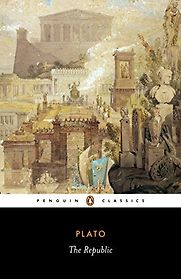
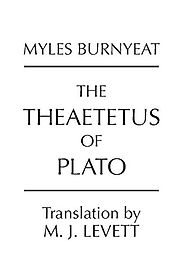
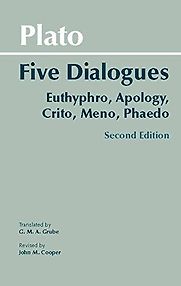
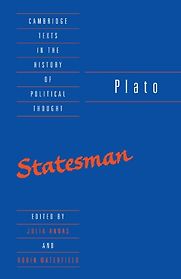
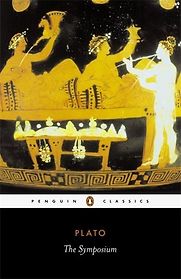
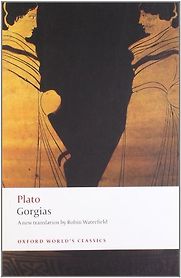

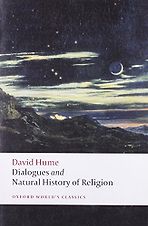


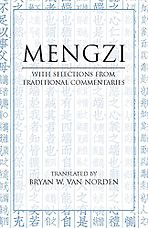

Which English translation of Plato’s Republic is best?
Professor Angie Hobbs, author of Plato’s Republic: A Ladybird Expert Book, a great introduction to the Republic, helps us decide between the many translations and editions of Plato’s Republic. Her choices:
1. The Republic translated by Desmond Lee with an introduction by Melissa Lane (Penguin Classics)
“This is lucid and accurate, with a very helpful introduction by Lane”
2. Republic, translated by G M A Grube and revised by C D C Reeve (Hackett Classics)
“Very readable and successfully renders much of the incisive energy of the original; expertly revised by Reeve.”
And, lastly, if you’re ready to read the Republic in the original Greek:
3. The Republic of Plato, edited by James Adam (Cambridge University Press), 2 vols
“Hugely knowledgeable and scholarly edition of the Greek text, with many penetrating insights which have stood the test of time.”